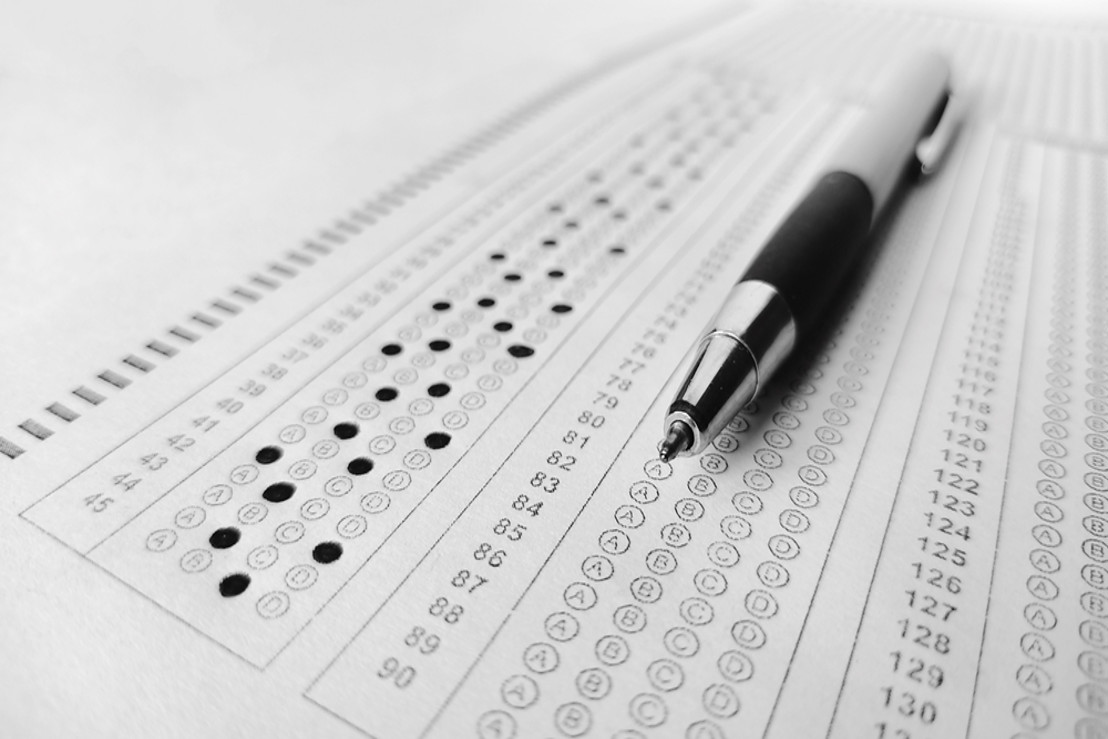The Best Strategies for Acing the ACT and SAT

"Whatever you do, work heartily, as for the Lord and not for men." - Colossians 3:23 ESV
Preparing for college takes hard work, dedication, and a desire to improve oneself — all qualities that honor God while opening up exciting new paths ahead. As you prepare for college admissions, taking standardized tests is likely high on your list. Whether you're headed to a school where tests are optional, like DBU, or you need test scores for other applications, study smarter with these standardized test prep tips.
How Scores Could Help Your Application
Even though DBU does not require standardized test scores, it's a good idea to submit them if you've already taken the tests for other schools. DBU's policy includes using submitted test scores in admissions decisions only if the scores improve the application, so there is no harm in submitting your information.
In addition to potentially helping your application materials, ACT and SAT test scores are required to receive certain merit-based scholarships that can help you pay for your education.
Testing Opportunities for DBU Students
If you've already applied or been admitted to DBU and later decide you need ACT scores, DBU offers an on-campus or "residual" testing program outside of traditional ACT National Testing dates. You can sign up online and pay the $25 fee. Keep in mind your ACT scores will only be valid for DBU admissions, not other institutions.
The admissions requirements for Dallas Baptist University are available on the Undergraduate Admissions page. Standardized test scores from the ACT, SAT, or CLT are optional.
Preparing for Testing Day
Whether you're taking standardized tests for DBU or planning to apply for merit-based scholarships, proper preparation is key. Even if your test scores don't impact your application materials, the planning and preparation are excellent practices for the work you'll do as a dedicated college student.
Several Months in Advance
SAT preparation tips and ACT strategies don't begin the night before the test. It's critical to plan your testing strategy early so that you have several months, if possible, to prepare. Try to incorporate these components into your routine for three to four months before your testing date:
- Read. A lot. Many of the SAT and ACT components include a working knowledge of vocabulary, reading comprehension, and writing techniques. By reading your textbooks as well as additional materials, you'll build your English language skills and reading speed.
- Learn about the tests. The SAT and ACT have many similarities and differences. Make sure you understand the structure of each test, time limits, and score requirements from any schools and scholarships you might apply for.
- Take several practice tests. Before you begin a training routine, it's good to know where your strengths and weaknesses are. Your first practice test will highlight these areas. Every two or three weeks, take another timed test to note improvement and practice working under stress.
- Make an official study plan. Many public libraries offer free standardized test practice books and online resources, such as Khan Academy and the College Board, which have free test prep courses. Plan to focus on your areas of weakness first, then add other study times if you can.
The Week Before Testing
As test day approaches, it's important to shift gears away from actual studying and instead focus on calming your nerves and preparing physically. This is also an excellent time to pray — and pray often — as confiding in God goes a long way toward calming your nerves.
- Get eight hours of sleep every night.
- Eat consistent, healthy meals and drink plenty of water.
- Take one final practice test.
- Double-check your testing details so that you aren't scrambling with logistics at the last minute.
Testing Day Tips
During your standardized test, focus on what you can control. These tips for the SAT and ACT will help you feel confident as you move through the pages.
- Use the process of elimination. You can almost always narrow down your answer choices just by looking at which answers are impossible given the prompt.
- Read carefully. Look out for trick words like "except" and double negatives.
- Skip the hard questions. Circle them and come back later if you have time. It's important to get credit for the things you do know on later questions.
- Look for the more succinct answer. If two answers seem correct, choose the more concise one.
- Look for context clues. Use information in the introductory sections on reading passages to give context clues.
- Context and connotation are key in reading passages. Skim passages first, then go back to gather relevant details for each question.
- Answer every question. Even if you are unsure of an answer, make your best guess so you don't leave anything blank.
- Breathe. You can always take the test a second time if you need to.
- Pray. It's more than okay to take a moment during the test to ask God for peace and guidance.
SAT Specific Tips
Your SAT preparation should make it easy to follow a few test-specific strategies as you complete the four sections.
- If you're taking the Digital SAT, practice using the online notepad in the app. You'll use this to solve math problems.
- Don't memorize math formulas. You'll have a reference sheet.
- DO memorize the grammar rules that SAT authors use.
ACT Specific Tips
For your ACT testing strategies, make sure to follow the general tips above and incorporate these specific reminders.
- Practice with graphs for Science. This section is more about using data and logic than actual scientific content.
- Come prepared with a few examples for the Essay. You can use them as generic fillers for a variety of topics.
- Prioritize the intro and conclusion in the Essay. Your introduction and conclusion are the most critical parts.
- Start with your favorite topic in the Reading section. Beginning with something you enjoy can ensure you're engaged with the easier questions.
- Use the visual aids in Math and Science. These sections' aides help eliminate wrong answers that don't coordinate with the charts.
Although standardized tests might seem daunting, your hard work and effort to prepare will pay off. And as always, turn to God to guide you along the way.



